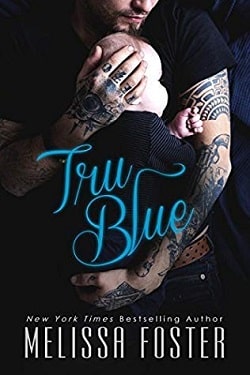Page 139 of Lethal Alliance
“You will have to ask my son when he arrives.” Sergei laughs softly. “He ispakhannow. After all the treasures had been returned to us in Paris, we’d walked away from the vodka business, but it was a simple enough matter to buy it back under a different name. And just like that, I knew what my next step was. I set up an import-export business the next day, behind a false business wall, of course. Only this time, I understood the risk I was taking. And I made sure Aleksander was nowhere near it. He’d worked hard for a simple life, and he’d earned the right to live it peacefully.”
He turns the vodka glass on the table. The rasp in his voice has gone, as have the slurred edges. Sergei’s eyes are a piercing, fierce blue, as if speaking of those years has brought back the life force that drove him through them. “I was smarter,” he says slowly. “I knew that so long as our fortune existed, men with guns would want it. Money and riches are like that; no matter how well they are hidden, greedy men will seek them out. Perhaps Fedorov was dead, and perhaps not. Either way, I knew it was only a matter of time before I drew the attention of violent men again.
“So I didn’t try to hide. I didn’t try to build a simple life. Instead, I built an army. I built a fortress. I built one of the biggest, hardest criminal empires Miami had ever seen, and the Petrovsky legend was created.” His face is animated, once again the fiercepakhan. “I swore that no matter how long it took, I would make sure every one of those treasures was returned to a rightful heir. And this time, I would make sure Aleksander was kept far away from the process. The decision was mine, and so would be the risk.” He smiles with real affection. “But we had been partners, brothers, our whole lives. Aleksander didn’t like the idea of leaving the responsibility of our joint promise on my shoulders. In the end, we compromised: he would build a vault as secure as the one his father had once built for mine, back in Russia. A place to store the treasures safely until they were all distributed.” He pauses, staring at the glass, his smile fading. “And he made another promise. Or rather, we made a promise to each other. We swore the Naryshkin legacy would die with us. Neither of us had either a wife or children at that time. We never imagined we would again. Aleksander and I promised one another that, on our deaths, the master lock would be set by code on the vault, and nobody would ever enter it again.
“Then Aleksander met Rosa.” Sergei’s mouth tightens. “Soon after they were married, you were born, Roman.”
Is it just me, or does his smile seem forced?
“Shortly after that, Aleksander’s business was broken into.” I stare at him, surprised. This part of the story I know nothing about.
“To anyone else,” Sergei continues, “the break-in might have seemed insignificant, just a crime of opportunity. But not to us. For the first time, we began to consider that Fedorov might still be alive—and hunting us.
“The night of the break-in was the evening after your christening, Roman. Aleksander and Rosa had come to celebrate at my compound and were staying the night. It was sheer luck that they were not home. Maria, Rosa’s closest friend, was visiting for your christening.” He stares at the table, his face inscrutable. “We’d only met once before that night, at Rosa and Aleksander’s wedding. After that night, however, I was afraid for her safety. Maria never went back to Rosa’s house. We were married barely weeks later.”
He says this in a matter-of-fact tone, almost as if marrying Maria was just another part of taking care of business. I notice that while he always speaks about Maria with affection, there’s none of the intensity that was present when he spoke about his first wife in Paris, nor even the reverence with which he spoke about Aleksander meeting Rosa. I don’t doubt that Sergei loved his wife. But I can’t help but feel that marrying her had more to do with keeping her safe than a dramatic love story.
Then again,I think, closing my eyes briefly as Darya’s face swims across my mind,maybe I’m just biased.God knows I’ve lived my entire life, until recently, believing love was a myth. If I hadn’t met Darya, I might still believe that.Who am I to judge?
“Back in Paris, Fedorov had come for our families before we had a chance to get them to safety. We were determined that would never happen again. The fingerprints were our solution, our fail-safe, should everything go wrong. If by some chance we were to die, or were captured, the keys and fingerprints were a bargaining chip, something our children could use to survive, if it came to it. So, to answer your question properly, Roman.”
He looks up, holding my eyes. “We didn’t tie your fingerprints to the vault to keep the contents of it safe. We put them there so that if you ever needed to trade something for your freedom, you could.” His mouth twists. “We thought we had made you too valuable to kill,” he says softly. “It never occurred to us that we had also turned you into bait.”
The day is growing late, dusk falling over the terrace. A bird caws in the distance, a sad cry that echoes the tragic past my father and Darya’s have lived.
“Would you object to me telling Darya this story?” I ask him.
“No.” Sergei shakes his head and lights another cigarette, his hand shaking slightly. “It’s probably better if you do the telling.”
“I will also need to speak to Alexei.” I meet his sharp look calmly. “We need to decide what to do. This is no longer your decision, Sergei. It’s ours.”
He draws on his cigarette, then nods reluctantly. “I accept that.”
“Good.” I pour us both another glass, and we clink them together, drinking a silent toast to that decision.
“You never told Vilnus Orlov that my father hid a key. Not even when they tortured your wife and your children. You never told Alexei there even was a key—and you never told him about the one that Rosa hid.” I glance at Sergei curiously, but he stares straight ahead, his face as inscrutable a mask as his damn son’s. “It was Rosa herself who finally told Alexei the truth, first when she came through the tunnels, and later when she told him where the key was. You never betrayed her secret, even when it could have saved you and your children.”
Still he doesn’t speak.
“You had no reason to protect me all those years. You didn’t believe that I was alive. You thought you’d seen my ashes beside my father’s.”
Sergei flinches, his eyes closing briefly at the mention of my father.
“That means there was someone else you were protecting.” I clip the end of a cigar and light it, watching the smoke curl into the fading day. “How long have you loved Rosa?” I ask conversationally.
Sergei’s head snaps around, his eyes blazing into mine. Then he swallows hard, clasps his hands, and turns away from me. It all happens in a second. As quickly as his emotions betray him, he regains control.
I know that trick. I’ve done it myself a time or two.
“I see the way you and Rosa look at each other.” I swallow more vodka and pour us both another glass. “Not to mention the way the two of you fight. People only fight like that with those they care for deeply.” I grin. “I should know. I’ve fought with your daughter like that since the day we met.”
He clears his throat uncomfortably. “This isn’t appropriate—” he begins.
“You married Maria to keep her safe,” I cut him off. “But that wasn’t because you were in love with her, was it, Sergei? It was because you knew it would make my mother happy to know her friend was safe.”
When he doesn’t immediately answer, I glance sideways. It’s hard to be certain, but I suspect the red tinge on his cheeks has nothing to do with the rose-colored sky.
“Maria and I had a good marriage,” he says solidly. “She was a lovely person. We were blessed with beautiful children.”















